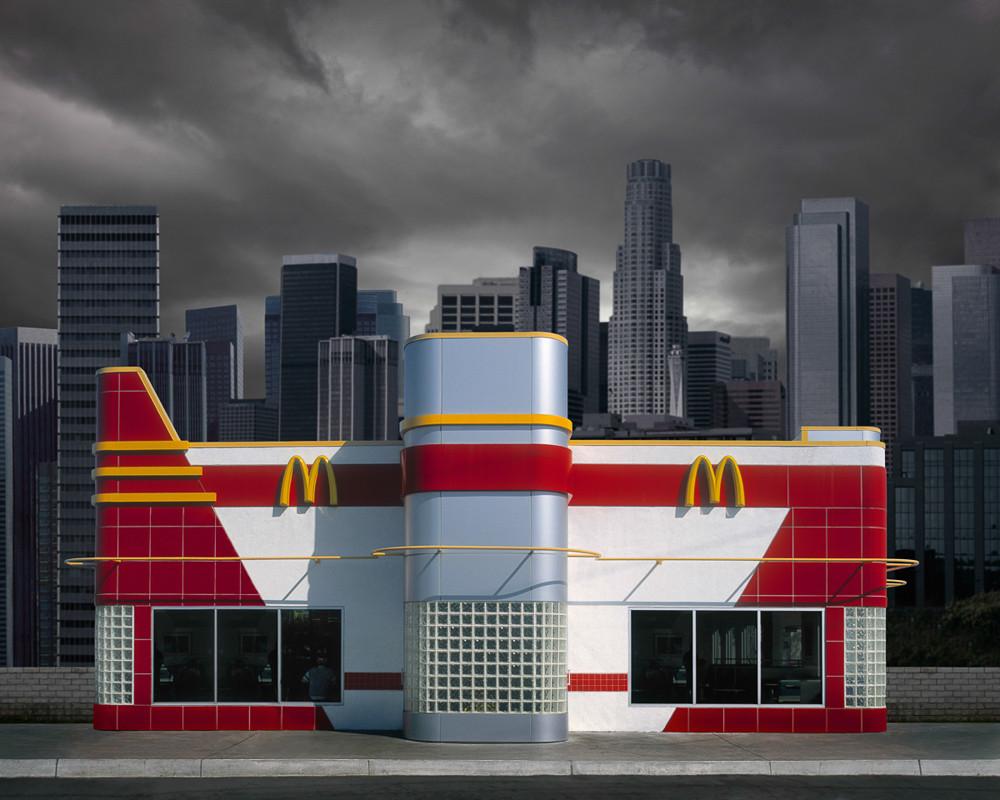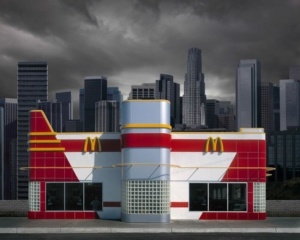
What has happened to the idea of “alternative”? How did it go from signifying a proto-hipster cultural orientation (alternative radio, alternative weeklies) to being an organizing banner for avowed white supremacists, neo-Nazis, and a host of fellow traveling far-right reactionaries (alt-right)?
In the 1980s, while pursuing a course of deregulation, privatization, union busting, and dismantling of government social services, British Prime Minister Margaret Thatcher was fond of insisting that “there is no alternative.” That is, the debates over the relative benefits of capitalism and socialism were over; capitalism won, and all that was left to do was to clear any vestigial obstacles in its path, letting markets arbitrate everything.
The collapse of the Soviet Union seemed to confirm this view, with political theorist Francis Fukuyama famously suggesting it signaled the “end of history.” Socialism —the god that finally failed — would be left behind, and liberal democracies around the world would administer a globalized capitalist order. Economic and political issues had been solved — no alternatives — but individuals, Fukuyama wistfully lamented, would also lose a sense of historical purpose: “The end of history will be a very sad time,” he wrote. “The struggle for recognition, the willingness to risk one’s life for a purely abstract goal, the worldwide ideological struggle that called forth daring, courage, imagination, and idealism, will be replaced by economic calculation, the endless solving of technical problems, environmental concerns, and the satisfaction of sophisticated consumer demands.” We could no longer imagine a Red Dawn in which American teens would sacrifice everything to protect freedom and democracy from the communist menace. Instead they’d be consigned not even to the dustbin of history but to the mall.
At the moment when elites were convinced that alternatives had been abolished in the political and economic spheres, alternative abruptly reappeared as a cultural tag to mark an idiosyncratic individualistic disposition. What had been an inchoate blend of countercultural impulses — epitomized by DIY punk scenes, college radio stations, weekly city papers, used book stores and vintage shops, and fringy characters in teen movies — that mostly flew below the radar in the more massified times of Reagan-era America suddenly consolidated under the label of alternative, which seemed to outsiders to have sprouted fully formed from the head of Kurt Cobain in 1991. Here were the “sophisticated consumer demands” Fukuyama anticipated, appearing not as the culmination of neoliberalism but as an apparent form of resistance.
As the 1990s progressed, the futility and core incoherence of consumption as rebellion became more obvious. Performers used the idea of “refusing to sell out” as a means to sell out. Alternative seemed less a rejection of mainstream culture than an intensified expression of the flourishing neoliberal ethos, the “new spirit of capitalism” described by Luc Boltanski and Eve Chiapello, in which free-thinking, flexible “creatives” generate value through their personalities and diverse interests.
As alternative was being standardized into a music genre and radio friendly bands named themselves the New Radicals, the word in its abbreviated form — alt. — was evolving into a designation for the unclassifiable heterogeneity on then emerging online newsgroups, the domain one would use to launch an hyper-niche fan group or trade pirated files as binaries. People who may have felt alone found that there were others who shared their interests or, if not their specific predilection, a broader shared interest in difference itself.
Metastasizing alt. groups were manifestations of a mercurial energy that capitalism has always tried to tame and recuperate, a force that discovered and defined itself through evading standardized categories. That energy had been ambient everywhere in the 1990s, and maybe it is always in the air, the yearning for something different that defies articulation until it suddenly coalesces and makes the implausible seem inevitable. This energy still seems to adhere to the “alt” tag, but there is no inherent ethical orientation to it. Recent use cases like “alt lit” or “alt-right” seem to appeal to that energy, as if those who evoke “alt” can feel as though they are wielding its untapped power.
The term now seems fatally compromised by its association with neo-Nazi agitation; just as alternative captured its era’s underlying neoliberalism, alt- captures the return of proud, overt fascism in our time.
In “No Alternative,” Gavin Mueller traces the migration of alternative online and examines the shifting political valence of media-thwarting tactics like culture jamming. “Once, not long ago, critical media scholars told us to jam culture for the sake of good,” he writes. “Now when we spread an obvious parody on Twitter, we are part of the problem, demonstrating ‘people’s willingness to suspend disbelief and their susceptibility to confirmation bias.’ “
Adam Clair, in “Lonely Road,” uses the example of the late night radio show Coast to Coast AM to explore how loneliness can fuel alternative epistemologies, like paranoia and the belief in the paranormal. Here, alternative beliefs are acknowledged and unchallenged; they secure acceptance even as they mark one’s point of view as singular. The show evokes a different sort of social media, harboring an oxymoronic community of the lonely.
The idea of “alternative” has always carried with it a sense of individual alienation and the faith in a community that might resolve or redeem it. The prominence of the alt-right, in discrediting the term, is also threatening to discredit the promise that has always been latent within it: that an ultimately inclusive solidarity can be forged through opposition to a mainstream that relies on so many exclusions. But now “alt” has been emptied of such hope, serving to aestheticize hatred instead.
Featuring:
“No Alternative,” by Gavin Mueller


Thank you for your consideration. Visit us next week for Real Life’s next installment, REALITY TV, featuring the illusions of behind-the-scene footage, and the Bachelor as gaming spectacle.